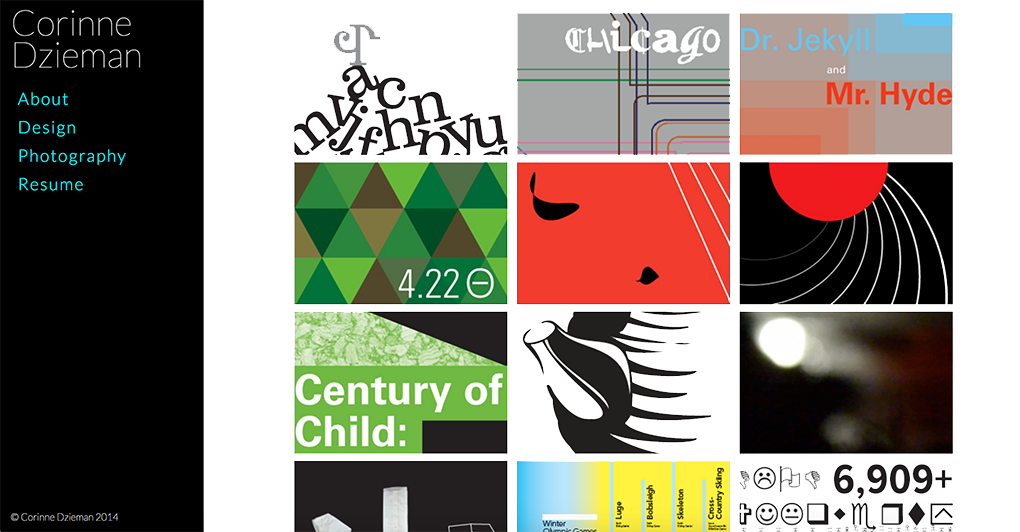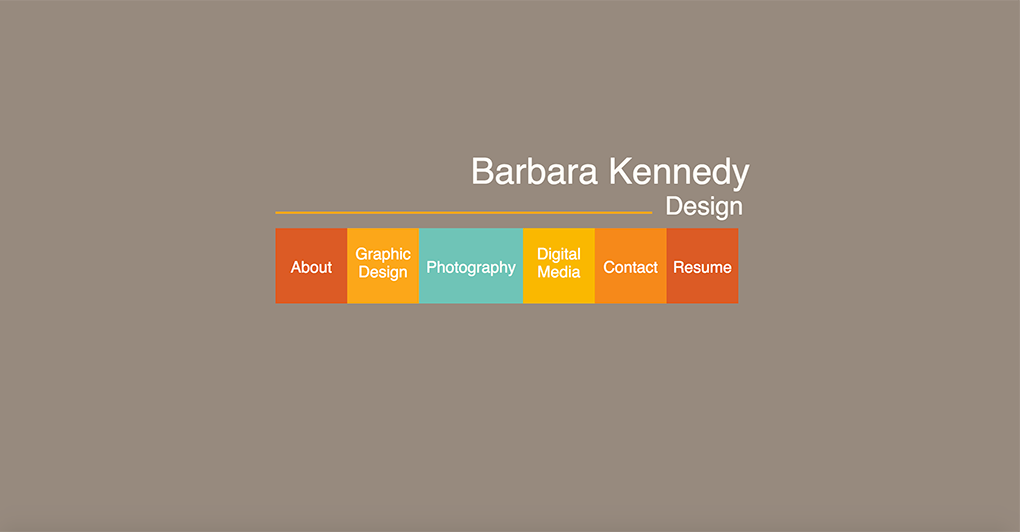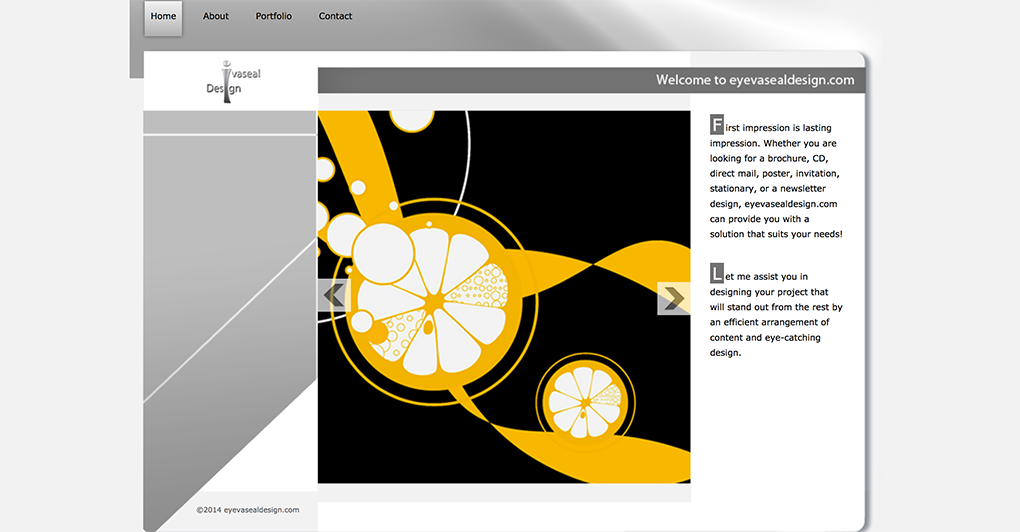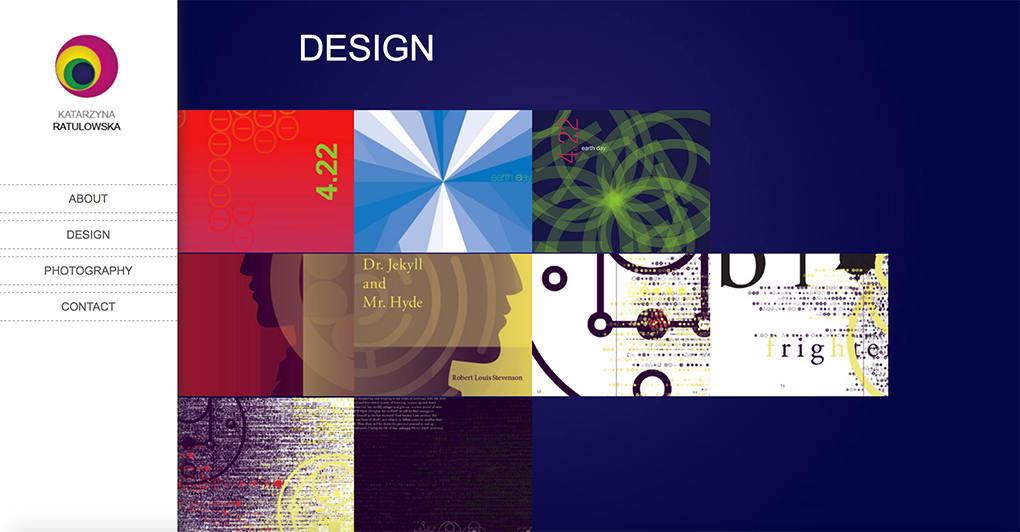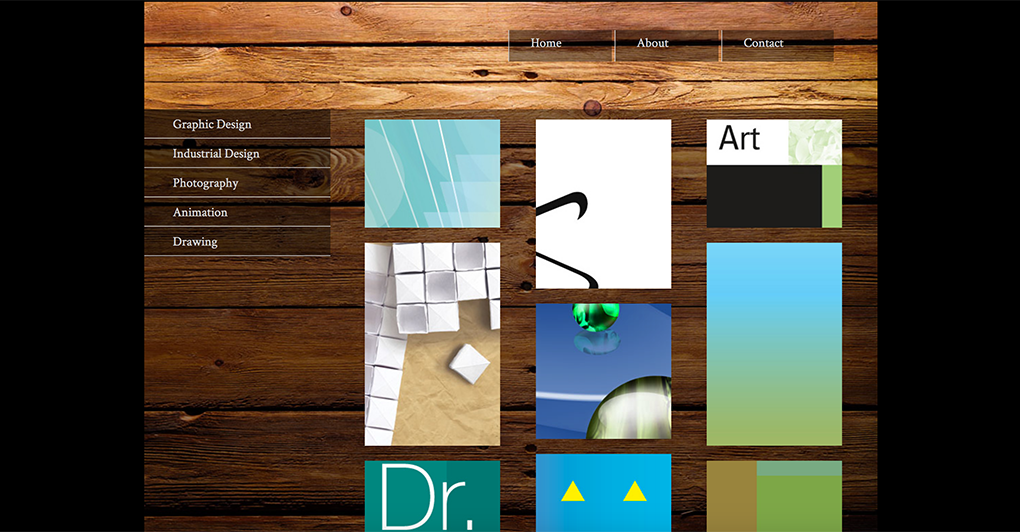
DES 251
Digital Media Design
Lab: 2068 Engineering Research Facility (ERF) 842 W Taylor
36092 36093 4 credits
Associate Professor Daria Tsoupikova (tsoupi@uic.edu)
Graphic Design Lab System Admin: Daniel Mellis (dpmellis@uic.edu)
Office: 312-996-2611
Office hours: by appointment
www.evl.uic.edu/datsoupi/251/2014/
Course Description and Objectives
This course introduces the concepts, practices, and technologies to design and develop web sites and web applications. The course provides a solid web design foundation, focusing on static content and client-side components such as XHTML, CSS, and multimedia. Participants will be introduced to the designing process and methods of information architecture, learn how to design and build a visually distinctive and engaging website and learn to effectively critique and analyze existing web design.
The course will cover current vocabulary, tools, and standards used in web design and introduce how the various components including XHTML, CSS, multimedia, scripting languages, HTTP, clients and servers function in today’s web world. In this hands-on course, participants structure pages with XHTML and CSS, and learn how to format text, incorporate images, create links, how to program in JavaScript and use related frameworks, build site maps and wireframes, how to set up domain names with DNS, host and upload a website. A strong emphasis is placed on both good visual design and an understanding of design coding using Cascading Style Sheets (CSS) and CSS-based layouts. Students will design and implement their own websites and participate in design discussions and critiques and gain solid web development experience through a real world project.
Course objectives/learning outcomes
1. Design and develop websites using XHTML, CSS and related technologies.
2. Use latest web technologies, tools and programming languages to create web interfaces.
3. Manage and host personal websites.
4. Understand design techniques and standards to create responsive web designs.
Class time will be split between lectures and technical demos and hands-on labs where participant will practice various strategies for creating and styling websites. Class lectures will include technical demos, discussions, critiques and historical information relevant to web design. For the duration of the course we will be using the Apple Macintosh platform and a variety of design and development packages, languages and frameworks, such as HTML5, CSS, JavaScript, Dreamweaver, etc. While a variety of technologies and software packages will be utilized, the course focuses on the design of creative websites and the quality of their implementation.
There will be two primary projects: a midterm and a final, accompanied by smaller class exercises, quizzes and several assignments. The focus of the assignments will be the creative use of the techniques acquired in class. An emphasis will be on the effective use of design principles using the computer as a tool. Participants will present their work during class critiques to receive qualitative feedback from the instructor and the class to ensure constant development.
Prerequisites
Knowledge of how to use graphic design software (Adobe Creative Suite Photoshop, Illustrator, InDesign) to execute a design. Students should have a basic understanding of typography, composition and how image and type can be used to communicate a message. They should have basic drawing skills to design visual approaches and layouts, basic familiarity with computer hardware, software, and the Internet. No prior programming experience is necessary.
Graphic Design Lab Fee
There is a $125.00 required laboratory fee for this course, which is used for the course supporting materials, and supplies (printer paper, copies, media storage, supplies for presentation etc.)
Materials
Sketchbook
Laptop computer
Adobe Creative Suite 5.5+
USB Flash drives (minimum 4GB) - to save your back up files. It is recommended to store data additionally on a private computer or external hard-drive. Students are required to store and backup their files appropriately and an additional data storage is strongly advised for back-up.
Evaluation and Requirements
Your final grade will be based on your performance on the course’s projects, active contribution to class meetings, motivation, problem solving and organization of your work. Projects will be evaluated using criteria of correctness, design, functionality and style. Active participation and collaboration during discussions and critiques is required.
On-time class attendance is mandatory. It is not possible to make up or compensate for missed class sessions or quizzes. More than three unexcused absences will result in a reduction of the final grade by 1 letter grade; with every additional unexcused absence, the final grade will drop by an additional grade. Some of the discussions and exercises are done and graded in-class so you must attend class to receive these points. Three tardies do equal one absence. Excused absences will be accepted with proper documentation (ex. Doctor’s note). Please read the university’s Attendance Regulations for further details on acceptable absences.
Completion of all assignments and projects based on dates given is mandatory. Projects will be submitted online. Late assignments will reduce the grade proportionally. If you miss the original due date due to illness (accepted with proper documentation), the project is due the following class. In the case of serious medical situations, reasonable accommodations will be made. Projects more than 5 days late will not be accepted. Be sure to submit the work well ahead of due time. Excuses like website or computer error will not be accepted after the due date.
'Incompletes' will only be granted according to University policy.
Any individuals with learning disabilities or special needs must make the instructor aware of them prior to the due date of the first major assignment. Those who require accommodations for access and participation in this course must be registered with the Disability Resource Center. Please contact DRC at 312/413-2183 (voice) or 312/413-0123 (TTY). http://www.uic.edu/depts/oaa/disability_resources/contact.html
If you wish to observe your religious holiday, which is in the conflict with mandatory academic attendance, you should notify the instructor by the tenth day of the semester of the date on which you are requesting an absence.
You are responsible for understanding what constitutes academic dishonesty. Academic dishonesty is an extremely serious offense. All cases of academic dishonesty will be dealt with in accordance with the policies of the University as published in the Undergraduate Catalogue and the University of Illinois at Chicago policy on Academic Honesty at: http://www.uic.edu/ucat/cat1315archive/index.shtml
Academic Integrity Policy
Students are expected to produce original work and to acknowledge all of external sources, including those on WWW.
Final Grade Rubric
A (90-100%) = Consistent growth in the above listed as well as excellent complete, on time work consistently going above and beyond what is required, demonstrating exploration, improvement, and command of material.
B (80-89%) = Above average growth in the above listed as well as above average complete, on time work demonstrating exploration and comprehension of material, yet may not be completely resolved.
C (70-79%)= Average growth in the above listed as well as incomplete, late average, undeveloped work that lacks evidence of engagement, exploration or resolution; unexcused absences and/or lateness.
D (60-69%)= Dissatisfactory growth in the above listed, incomplete, late work, ill-conceived and underdeveloped work that lacks evidence of engagement, exploration or resolution, excessive unexcused absences and/or lateness.
F (0-59%)= Dissatisfactory growth in the above listed, incomplete, late work and poor attendance.
Final Grade Breakdown
10% Participation/Contribution
60% Exercises/Assignments/Quizzes/Tests
10% Midterm Project / Presentation
20% Final Project / Presentation
This course uses the University’s Blackboard LMS (Learning Management System). This system is available at http://blackboard.uic.edu/. The LMS is a required and integral part of the course. Grading information and progress will be made available via Blackboard and students are expected to regularly check it.
Class and Lab Policies
No cell phone usage in the lab. You are responsible to turn your cell phone off prior to the class.
No non-class materials loaded into the computers.
No food or drink in the computer labs.
No surfing the Internet during lectures.
Reconfiguring the system on Cyber-Commons unusable for other courses and may result in dismissal from the
course.
No talking to neighbors during class.
No falling asleep.
No reading newspapers or magazines.
Your repeated disruption will reduce your final grade. In extreme cases, you can be asked to leave the class and even excluded from the course.
Disclaimer
Projects created in this course may be used by the Department for purposes of promotion for students, the School or the University in general. The School may also use these materials for instructional purposes in future courses.


